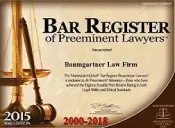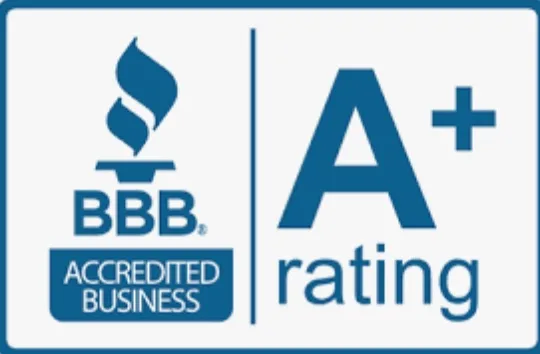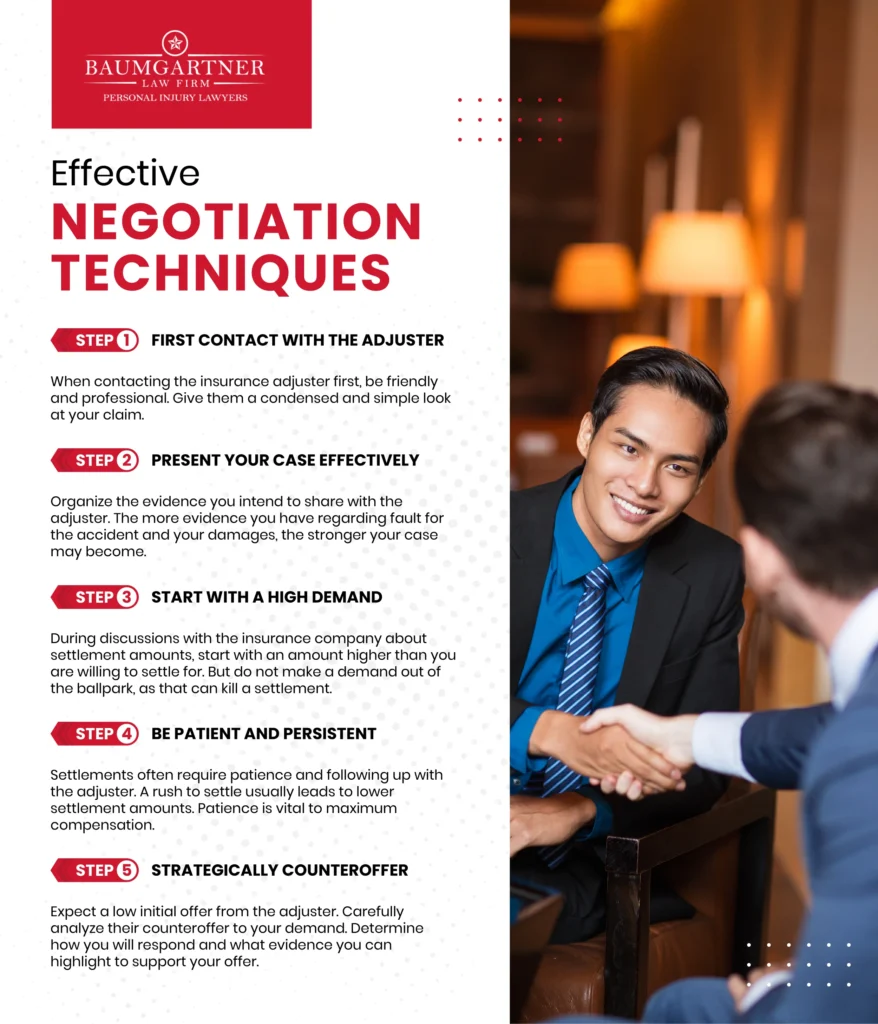Personal Injury Settlement Negotiation: How to Maximize Your Compensation in Houston
Whenever there is a dispute, one of the most common ways to resolve the issue is through negotiations. Most Houston personal injury cases are settled through a negotiation process. When a settlement happens in a personal injury case, the insurance company for the defendant or at-fault party agrees to pay an amount to the injured party as damages to settle the case.
Effective negotiation is critical to achieving a fair settlement in personal injury cases. Whether you have been injured in a car accident, a workplace incident, or another form of accident, it’s essential to understand the negotiation process and how to maximize the compensation you receive.

Understanding the Basics of Personal Injury Settlement Negotiation
Personal injury settlements involve negotiations between the injured party and the insurance company representing the at-fault party. The process typically begins when you or your attorney sends a demand letter detailing the facts of the accident, your injuries, medical expenses, lost wages, and other damages. The demand letter sets the stage for negotiation, presenting a starting point for compensation.
Insurance companies often respond with a lower offer, aiming to minimize their payout. However, it’s possible to negotiate a fair settlement with persistence, evidence, and a strong understanding of the process.
Key Factors Influencing Injury Settlement Amounts
Several factors influence the amount you can expect in a personal injury settlement:
- Severity of Injuries- The more severe your injuries, the higher the potential settlement. Injuries requiring extensive medical treatment or leading to long-term disability usually result in larger compensation amounts.
- Medical Treatment Costs- All medical expenses, from initial emergency care to ongoing rehabilitation, should be considered in negotiations. Include all related costs, such as prescription medications, physical therapy, and specialist visits.
- Lost Wages and Income- If your injuries prevented you from working, you are entitled to compensation for lost income. This includes the wages you have already lost and any future income loss due to diminished earning capacity.
- Pain and Suffering—Compensation for pain and suffering accounts for the physical and emotional distress caused by the accident. Calculating these damages often depends on factors such as the type of injury, the duration of recovery, and the impact on daily life.
- Property Damage- In cases where property, such as a vehicle, was damaged during the accident, include repair or replacement costs in your settlement negotiations.
- Liability and Fault- The clearer the evidence proving the other party's fault, the stronger your negotiating position. Texas is a comparative fault state. In Texas, if your fault is determined at trial to be over 50%, you will not recover damages.
- If liability is disputed, the settlement amount may be lower, as insurance companies often leverage uncertainty and partial fault to reduce payouts.






Essential Steps in the Personal Injury Negotiation Process
Build a Strong Case Early On
Immediately after the accident, gather all relevant evidence to support your claim. Evidence includes medical records, photographs of injuries and the accident scene, witness statements, and police reports. The stronger your evidence, the more leverage you’ll have during negotiations.
A Comprehensive Demand Letter
Your demand letter should provide a clear, detailed account of the accident and injuries, the treatment received, and the financial impact on your life. Considering all damages, it should also include a specific compensation amount you believe is fair.
Analyze the Initial Settlement Offer Carefully
Insurance companies rarely offer the best possible settlement amount upfront. Review the initial offer with your attorney, considering all your damages. Be prepared to reject low offers and counter with a reasonable demand based on the facts of your case.
Negotiate Strategically
When engaging in negotiations, be firm but reasonable. Provide additional evidence if necessary and explain why the compensation should be higher. Avoid accepting a settlement prematurely, especially if it does not fully cover your current and future expenses.
Leverage Expert Testimony When Needed
Expert witnesses such as medical professionals, accident reconstruction specialists, or vocational experts can strengthen your negotiation position in complex cases. Their testimonies can clarify the extent of your injuries, the cause of the accident, and the impact on your earning potential.

Common Tactics Used by Insurance Companies
Insurance adjusters often use tactics to minimize the payout. Be aware of these common strategies:
- Delaying the Process- Delays may pressure you into accepting a lower offer due to financial stress. Stay persistent and patient, and work with your attorney to maintain momentum.
- Questioning Medical Treatment- Adjusters may argue that certain treatments were unnecessary or unrelated to the accident. Document all treatments carefully and ensure they are directly linked to sustained injuries.
- Disputing Liability- If the fault is disputable, adjusters may attribute some of the blame to you, reducing the overall settlement. In such cases, having strong evidence and a compelling argument can protect your claim.
- Offering Quick, Low Settlements- Adjusters may offer a quick but low settlement to close the case quickly. While it may be tempting to accept early, waiting until the full extent of your injuries is often beneficial.
Maximizing Your Settlement Amount
To maximize your settlement, consider the following strategies:
- Stay Consistent in Medical Treatment- Continue receiving medical treatment as your healthcare providers recommend. Any gaps or inconsistencies can weaken your claim and suggest that your injuries are not severe. When seeing a doctor after a car accident, follow their instructions. Consider achieving maximum medical improvement before negotiating a final settlement.
- Be Prepared to Go to Court- While most personal injury claims are settled out of court, being prepared to file a lawsuit can give you leverage. Insurance companies are more likely to offer a fair settlement if they know you will take the case to trial.
- Consult with a Personal Injury Attorney- Having an experienced attorney on your side increases the chances of a favorable settlement. An attorney can handle negotiations, provide legal expertise, and represent your best interests. And importantly, a personal injury lawyer will know how much your personal injury case is worth.
Achieving a Fair Personal Injury Settlement
Securing a fair settlement requires a proactive approach, comprehensive evidence, and effective negotiation skills. By understanding the factors that impact settlements and employing strategic negotiation tactics, you can enhance your chances of receiving the compensation you deserve.
For a FREE Consultation Contact Us Today
"*" indicates required fields
Related Links
Our Experienced Houston Personal Injury Lawyer Can Help!
Case Results
$5,750,000.00 Truck Accident - Wrongful Death
$6,000,000.00 Daycare Injury
Confidential Settlement Commercial Vehicle Crash - Wrongful Death
Confidential Settlement Burn Injury
Confidential Settlement 18-Wheeler Accident - Wrongful Death
Legal Services
Contact the Personal Injury Attorney
at Baumgartner Law Firm for Help!
Contact the Houston personal injury law firm for help with a personal injury claim.
OR
Fill out an online consultation request for a FREE consultation.
Related Resources
- Car Accident Law Firm in Houston, TX
- Houston Personal Injury Lawyer
- How to Negotiate a Settlement with an Insurance Claims Adjuster
- When Does a Car Accident Go to Court? Essential Information to Know
- Do I Really Need an Attorney for a Personal Injury Claim in Texas?
About Our Law Firm in Houston
Houston personal injury lawyer Greg Baumgartner heads the Baumgartner Law Firm.
Our firm was established in 1985 and has helped thousands of injury victims get maximum compensation for their cases. If you have been injured in an accident in Houston, TX, contact us for a free, no-obligation consultation. (281) 587-1111.
Since 1985, Baumgartner Law Firm has limited our law practice to serious personal injury cases. Our legal team has won maximum compensation for thousands of accident victims and recovered millions of dollars for real people like you.
Helping these areas around Houston
"*" indicates required fields
